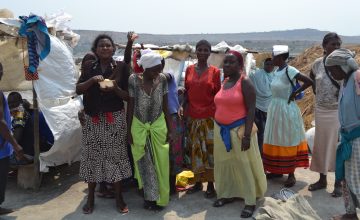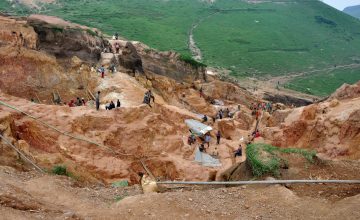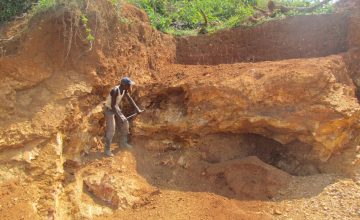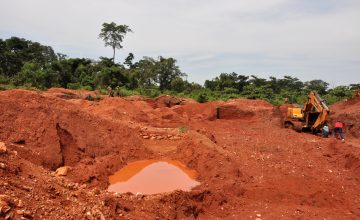
Jérémie Safari shares the most effective ways to protect LGBTQIA+ individuals in ASM mining in the DRC.

Exploring how we can integrate LGBTQIA+ rights into the responsible sourcing discourse, creating an environment that embraces inclusivity and safeguards the well-being of people irrespective of their sexual orientation or gender identity.

USAID’s Zahabu Safi (Clean Gold) Project challenges negative assumptions about how DRC gold is extracted, associated risks, and how responsible mid-and downstream actors can tackle them.

Gold refiners Heimerle + Meule, IGR, Italpreziosi, L’Orfebre, MKS PAMP, PX Precinox, and Rand Refinery have joined a group of refiners interested in learning and sharing the realities of ASM gold from the DRC.

We explain why successful sustainable supply chains need to seek out partnerships through the example of Fairphone.

Explore the opportunities for using technology solutions in responsible minerals production and sourcing in the DRC.

Discover the four NGOs we are donating to as part of our strategy to offset our carbon footprint past and present.

Jewelers are increasingly aware that, if they can carefully select gold from responsible ASM sources,they can play a role in changing lives for the better, a new report by USAID's Zahabu Safi project shows.

Les bijoutiers sont de plus en plus conscients que, s'ils peuvent sélectionner avec soin de l'or auprès de sources ASM responsables, ils peuvent jouer un rôle dans l'amélioration des vies, comme le montre le dernier rapport de Zahabu Safi.

Apply for the USAID’s Zahabu Safi Responsible Gold Innovation Facility to incentivize investment in new supply chain investment models for responsible gold originating from the DRC.

Read our top line summary of next steps for contributing to the formalization of logistics solutions in the ASM gold supply chain in eastern DRC.

Our new report is packed with case studies and practical entry points for reducing mining’s impacts on forests.

Une analyse des impacts de la Covid-19 dans le secteur de l’EMAPE en RDC.

Women ASM miners have been disproportionately affected by COVID-19, as our research for the Delve COVID-19 Impact Reporting initiative in Mozambique, Zimbabwe, Uganda and the DRC shows.

Explore how we designed an end-to-end capacity building programme to better support the DRC ASM sector.

As the COVID-19 ASM Delve data collection draws to a close, we share a preliminary overview of our findings and conclusions.

Our experts supported the EPRM in developing a meaningful baseline to monitor and assess the progress and impact of all its activities.

Levin Sources was contracted by a large downstream supply chain actor to provide expert support to their supply chain research and risk assessments for mineral supply chains originating in the DRC.

Learn how we are participating in a global impact reporting initiative on COVID-19 and ASM.

Learn about the collaborative revision process behind the Second Edition of the Regional Certification Mechanism

A recent report shows that ASM tin miners in the DRC don’t earn enough to cover basic expenses and offers suggestions to improve their revenues.

Discover eight key learnings from our market analysis of ASM gold from Eastern Congo carried out as part of the USAID Commercially Viable Conflict-Free Gold (CVCFG) Project.

Discover eight key learnings from our market analysis of ASM gold from Eastern Congo carried out as part of the USAID Commercially Viable Conflict-Free Gold (CVCFG) Project.

Read sector Insights into how LSM and ASM relationships could move beyond risk management towards positive impact and how donor-funded programmes could provide avenues for reduced-risk engagement with ASM by LSM companies.

An overview of two Levin Sources-hosted ASM-PACE roundtables in Washington D.C. and London, in collaboration with the World Wildlife Fund for Nature (WWF).

Levin Sources conducted a specialist ASM study for a client who was in the process of developing a historic gold mine in the conflict-affected district of Ituri in the DRC.

Bref aperçu sur l'expérience vécu au cours de l'accomplissement des enquêtes dans la Reserve Naturelle d'Itombwe au Sud Kivu en juillet 2012